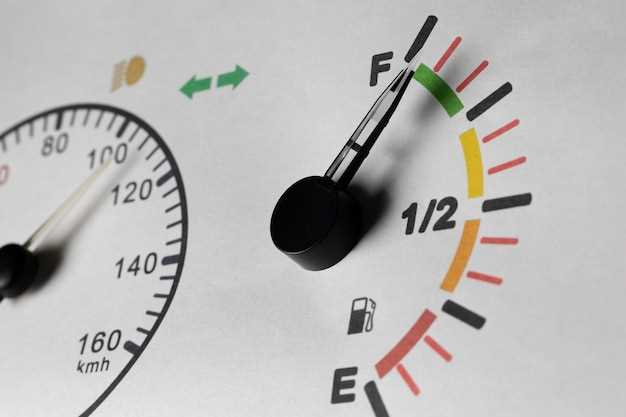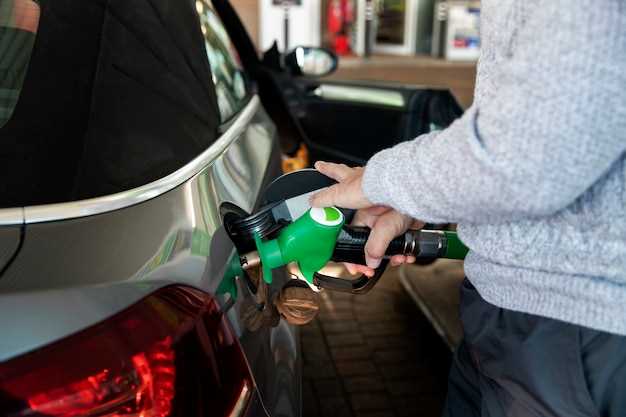
When it comes to navigating the ever-rising costs of fuel, budget-conscious drivers are increasingly seeking options that combine affordability with efficiency. The market for used cars presents a wealth of opportunities for those looking to maximize their savings at the pump without sacrificing quality or reliability. In this article, we will explore some of the best fuel-saving used cars that offer outstanding performance while keeping your expenses in check.
Choosing an efficient used car can significantly reduce your long-term fuel costs. These vehicles are designed not just for practicality, but also for optimal fuel consumption, catering to the needs of drivers who wish to minimize their environmental impact and pockethole. By focusing on fuel-efficient models, buyers can make informed decisions that align with their budgets and lifestyle requirements.
As we delve into the specifics of the top contenders in the used car market, it’s essential to consider factors such as reliability, maintenance costs, and historical fuel economy ratings. The right used cars can provide a perfect balance between cost-effectiveness and efficient performance, ensuring you make a wise investment that pays off in more ways than one.
Top 5 Used Cars with Excellent Fuel Economy Ratings

Finding a used car that balances fuel efficiency with overall value can be a challenge. Here are five outstanding options that not only save on fuel but also provide reliability and comfort.
1. Toyota Prius – The Prius is renowned for its exceptional fuel economy, capable of achieving up to 50 miles per gallon. Its hybrid technology optimizes fuel usage, making it a top choice for eco-conscious drivers. This car combines efficiency with a spacious interior and a reputation for durability.
2. Honda Civic – The Honda Civic is celebrated for its longevity and fuel efficiency. Many models offer upwards of 32 miles per gallon in city driving and around 42 miles per gallon on highways. With a comfortable ride and various body styles, the Civic remains a favorite among budget-conscious buyers.
3. Ford Fiesta – Offering excellent fuel economy, the Ford Fiesta boasts an EPA rating of up to 41 miles per gallon on the highway. Its compact size makes it ideal for urban driving, while the efficient engine delivers a fun driving experience without sacrificing fuel savings.
4. Hyundai Elantra – The Elantra combines an appealing design with impressive fuel efficiency, reaching about 36 miles per gallon combined. With a reputation for reliability and a well-appointed interior, this compact sedan is an economical choice for drivers seeking value.
5. Mazda3 – The Mazda3 is noted not only for its athletic performance but also for its fuel efficiency, averaging around 33 miles per gallon. This compact car offers a premium feel with a blend of style and practicality, making it a great option for those who prioritize both efficiency and driving enjoyment.
How to Assess the Fuel Efficiency of Used Vehicles
When searching for used vehicles, understanding their fuel efficiency is crucial for budget-conscious drivers. To start, check the vehicle’s miles per gallon (MPG) ratings provided by the EPA, which indicate how efficiently a car uses fuel. This information is often available in the owner’s manual or can be found on various automotive websites.
Next, analyze real-world fuel economy reports from current owners. Websites and forums dedicated to specific makes and models often feature user testimonials that can provide insights into the actual fuel efficiency experienced under varied driving conditions.
Consider the vehicle’s engine size, weight, and type of fuel it uses. Generally, smaller engines and lighter vehicles tend to be more fuel-efficient. Additionally, hybrid and electric vehicles typically offer greater efficiency compared to traditional gasoline engines.
Examine the maintenance history of the used vehicle as well. Regular maintenance, including timely oil changes and air filter replacements, can significantly impact fuel efficiency. A well-maintained vehicle is likely to perform better in terms of fuel consumption.
Finally, conduct a thorough test drive. Pay attention to how the vehicle handles in various driving conditions. Gentle acceleration and deceleration can contribute to better fuel economy, giving insight into how the vehicle might perform in daily driving scenarios.
Affordable Maintenance Tips for Fuel-Efficient Used Cars

Maintaining fuel-efficient used cars can significantly reduce overall expenses for budget-conscious drivers. Regular maintenance is key to keeping these vehicles running efficiently and maximizing fuel economy.
First, ensure that tire pressure is regularly checked and maintained according to manufacturer specifications. Under-inflated tires can lead to increased rolling resistance and decreased fuel efficiency. Keeping tires properly inflated not only improves fuel economy but also enhances safety and tire lifespan.
Next, change the oil and oil filter at recommended intervals. Using the right oil type can improve engine performance, leading to better fuel efficiency. Synthetic oils may be more costly upfront but can provide long-term savings by extending engine life and improving gas mileage.
Regularly inspect and replace air filters as needed. A clean air filter helps the engine breathe properly, which is essential for optimal fuel combustion. Ignoring this can lead to reduced efficiency and higher fuel consumption.
Additionally, keep an eye on spark plugs and ignition systems. Worn spark plugs can cause misfires and impact acceleration, resulting in wasted fuel. Replacing them according to schedule can help maintain smooth engine performance and enhance fuel efficiency.
Fuel-efficient used cars also benefit from regular check-ups on the fuel system. Consider having fuel injectors cleaned to remove any build-up that may cause inefficient fuel delivery, negatively impacting mileage.
Lastly, practice good driving habits. Avoid rapid accelerations, excessive idling, and aggressive braking. Maintaining a steady speed not only conserves fuel but also reduces wear and tear on the vehicle, ultimately lowering maintenance costs.






